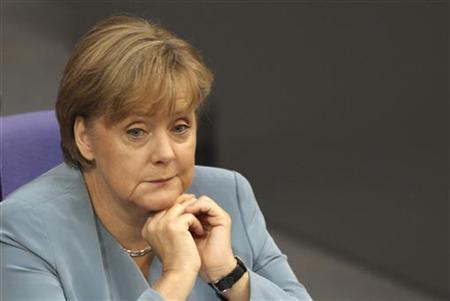Growing discord within the European Union has topped a top ten list of global threats, ahead of Putin’s Russia and ISIS. The list was compiled by leading risk consultancy Eurasia Group, who warned that the rise of populist parties threatened economic stability within the European block.
“I’m very far from a pessimist, but for the first time since starting the firm in 1998, I’m starting to feel a serious undercurrent of geopolitical foreboding,” said Eurasia Group’s founder Ian Bremmer whilst announcing his annual “Top Ten Risks” for the year in New York, the Telegraph has reported.
The report states that, although the EU’s finances are in better shape, “the politics is now much worse.” The group points to the rise of both far left and far right parties as evidence of mounting political instability and broadening Euroscepticism, forcing European leaders to adopt more Eurosceptic stances.
“Their rise has been dramatic, shows little sign of slowing, and will become politically meaningful in 2015,” the report says, pointing to the rise of Syriza in Greece and Podemos in Spain. “More broadly, this populist surge requires a move by the establishment parties toward more Eurosceptic positions to ensure they remain in power. This trend is clear both in Europe’s periphery and its core.”
In France, the UK and Germany, the establishment parties are having to fight off challenges from Eurosceptic parties who are surging in popularity. “The best case for Europe would be Germany, France, and the UK working together to provide leadership. But that’s far less likely in this environment.
“This year, conflicts over fiscal balances between and among Brussels, Berlin, Paris, Rome, and a host of other European capitals will make America’s Democrats and Republicans look like one big happy family.”
In second place on the list was Russia. Highlighting the conflict over Ukraine which has “crystallized a newly aggressive and explicitly anti-Western Russian foreign policy”, and taking into account “Western sanctions, a sagging oil price, economic stagnation, and the ruble’s plunge” the report concluded that Russia is being weakened “economically and financially,” although it has not yet been driven to the point of crisis.
“A Kremlin that feels antagonized and isolated but not substantially constrained is a dangerous prospect. An aggressively revisionist yet increasingly weak Russia will be a volatile actor on the global stage in 2015, posing a top risk to Western governments and businesses throughout the year.”
Meanwhile, the conflict with ISIS was placed fifth, behind “the effects of China slowdown” and the “weaponisation of finance”. Saudi Arabia vs Iran also made the list, as did Turkey.
Launching the report, Bremmer said: “Geopolitics is back. As 2015 begins, political conflict among the world’s great powers is in play more than at any time since the end of the Cold War.
“US relations with Russia are fully broken. China is charting its own course. The ties that bind Europe are fraying on multiple fronts. Others – Gulf Arabs, Brazil, India – are hedging their plans and alliances in reaction to increasing geopolitical uncertainty.
“There’s a view that America is withdrawing from the rest of the world, and that withdrawal is giving rise to much more conflict. That’s the wrong way to look at it. Instead, it is America’s growing unilateralism that is having geopolitical impact. The United States in recent years has more often acted just like any other country: sometimes proactive, sometimes belatedly reactive, and sometimes indifferent – but with much greater impact.
“[That] American unilateralism is stoking dangerous trends: Russia is lashing out, the Middle East is fragmenting, Islamic radicalism is expanding, and Europe faces challenges on all of these fronts. I’m very far from a pessimist, but for the first time since starting the firm in 1998, I’m starting to feel a serious undercurrent of geopolitical foreboding.”

COMMENTS
Please let us know if you're having issues with commenting.